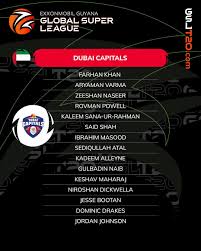Global Super League 2025: Revolutionizing Football

Introduction
The concept of a Global Super League has been a topic of heated debate among football fans, players, and executives alike. Scheduled to launch in 2025, this proposed league promises to change the landscape of club football around the world. With top clubs vying for attention and lucrative financial incentives, the potential impact of the Global Super League on the footballing ecosystem is monumental.
What is the Global Super League?
The Global Super League is envisioned as an elite competition featuring prominent clubs from across various continents, aiming to provide a platform for the world’s leading teams to compete against each other in a highly commercialized environment. The league targets a format that not only maximizes revenue generation but also increases fan engagement through high-profile matches and events.
Key Details and Events
According to reports, the Global Super League will consist of a set number of clubs, possibly expanding to include more teams over time. Initial discussions indicate that founding members could include historic clubs such as Real Madrid, Barcelona, Manchester United, and Bayern Munich, among others. The league’s structure is expected to draw inspiration from existing competitions like the UEFA Champions League but with significant changes in terms of qualification, format, and broadcasting rights.
Significantly, the league aims to address financial instability faced by many clubs, especially in light of the economic challenges posed by the COVID-19 pandemic. Increased revenues from new broadcasting deals, sponsorships, and commercial partners are anticipated to create greater financial security for participating clubs, fostering a more competitive environment.
The Response from the Football Community
The proposal has already faced backlash from fans and governing bodies such as UEFA and FIFA, who argue that such a league would undermine the traditional structures of national and continental competitions. Despite opposition, proponents assert that a Global Super League could lead to a new era in football, attracting global audiences and revitalizing interest in the sport.
Conclusion
As we approach the anticipated launch of the Global Super League in 2025, its implications for football remain to be seen. Will it deliver on its promises of excitement and financial stability, or will it provoke continued resistance from fans and governing bodies? Ultimately, the significance of the Global Super League lies not just in its formation but in how it reshapes our understanding and experience of football as a beloved global sport.









